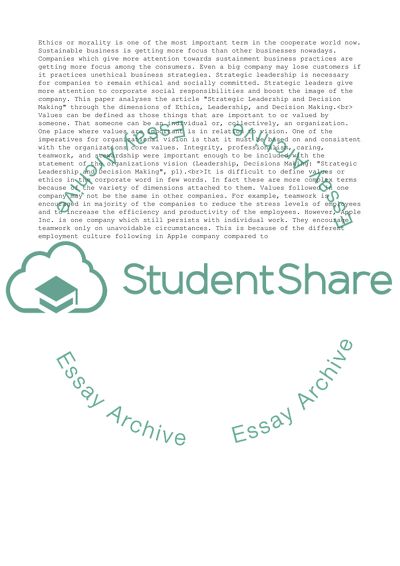Cite this document
(Ethics, Leadership, and Decision Making Essay Example | Topics and Well Written Essays - 2000 words, n.d.)
Ethics, Leadership, and Decision Making Essay Example | Topics and Well Written Essays - 2000 words. Retrieved from https://studentshare.org/business/1786069-ethics-leadership-and-decision-making
Ethics, Leadership, and Decision Making Essay Example | Topics and Well Written Essays - 2000 words. Retrieved from https://studentshare.org/business/1786069-ethics-leadership-and-decision-making
(Ethics, Leadership, and Decision Making Essay Example | Topics and Well Written Essays - 2000 Words)
Ethics, Leadership, and Decision Making Essay Example | Topics and Well Written Essays - 2000 Words. https://studentshare.org/business/1786069-ethics-leadership-and-decision-making.
Ethics, Leadership, and Decision Making Essay Example | Topics and Well Written Essays - 2000 Words. https://studentshare.org/business/1786069-ethics-leadership-and-decision-making.
“Ethics, Leadership, and Decision Making Essay Example | Topics and Well Written Essays - 2000 Words”. https://studentshare.org/business/1786069-ethics-leadership-and-decision-making.


